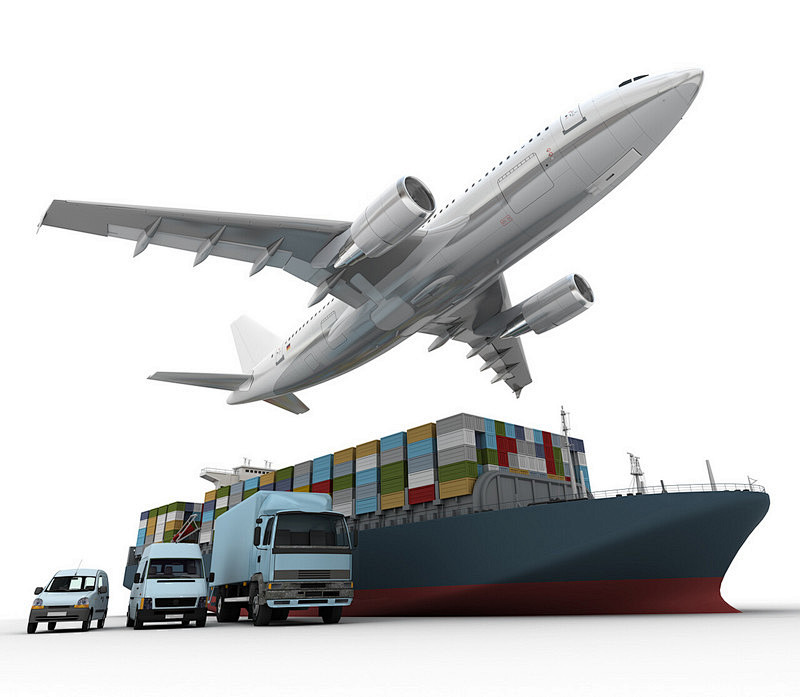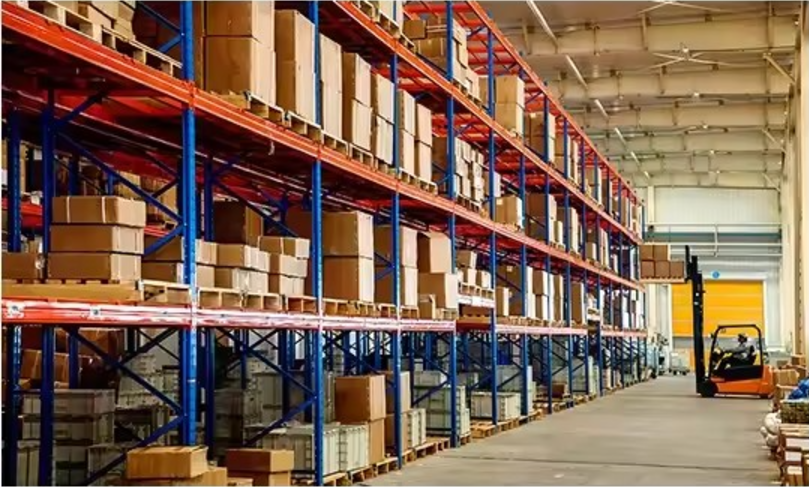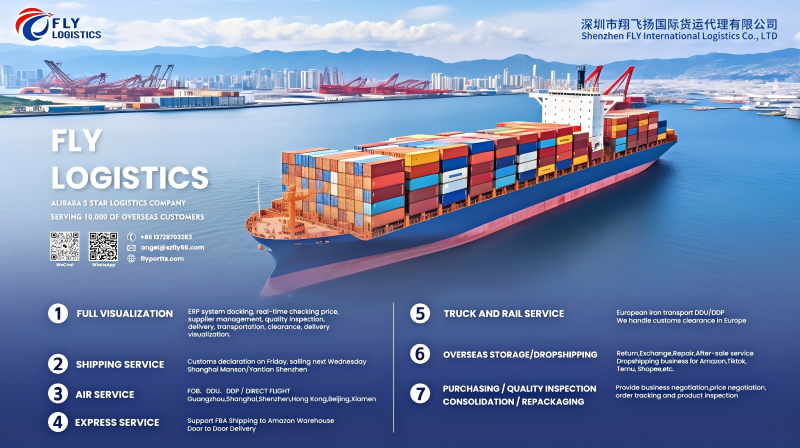When it comes to international shipping and logistics, understanding Incoterms (International Commercial Terms) is crucial for businesses to ensure clarity in contracts and transactions. These terms outline the responsibilities of buyers and sellers in the international trade of goods. Among the most commonly used Incoterms are DDP, DAP, and DDU, which dictate various aspects of the delivery process, including the payment of duties, risk management, and cost allocation.
What are Incoterms?
Incoterms are standardized trade terms that define the responsibilities of buyers and sellers for the delivery of goods under sales contracts. They were first introduced in 1936 by the International Chamber of Commerce (ICC) and have been updated several times. The most recent update was in 2020, which clarified terms like DDP, DAP, and DDU.
Incoterms cover various aspects of shipping, including who is responsible for transportation costs, who pays for insurance, and who handles customs procedures. Each Incoterm is followed by a location, such as a port or specific address, to clarify the point at which the seller’s responsibility ends, and the buyer’s responsibility begins.
What is DDP (Delivered Duty Paid)?
DDP (Delivered Duty Paid) is the term that places the maximum responsibility on the seller. Under DDP, the seller assumes almost all of the costs and risks associated with transporting goods to the buyer’s location. This includes:
- Shipping costs: The seller arranges and pays for the entire transportation process, from the seller’s warehouse to the buyer’s destination.
- Customs clearance and duties: The seller is responsible for both export and import customs duties and taxes, which must be paid in full before delivery.
- Delivery to the destination: The seller is also responsible for ensuring that the goods arrive at the buyer’s location safely and on time, whether that is a port, warehouse, or any other specified destination.
In short, DDP means the seller handles everything until the goods are delivered to the buyer’s premises. It is particularly advantageous for the buyer because they only need to handle the receipt of goods, without worrying about logistics or customs procedures. However, it can be costly for the seller, especially when shipping to countries with high import duties or complicated regulations.
Advantages of DDP
- Convenience for the Buyer: The buyer benefits from a straightforward delivery process, with no need to handle any logistics, customs clearance, or duties. This “all-in” pricing makes it simpler for the buyer to predict the total cost.
- Reduced Risk for the Buyer: As the seller is responsible for both shipping and customs, the buyer faces minimal risk related to transportation delays, cost overruns, or customs complications.
- Seller’s Control Over the Entire Process: Sellers using DDP maintain control over the full logistics process, ensuring that the goods are delivered on time and in good condition, with no involvement from the buyer in terms of customs or duties.
What is DAP (Delivered at Place)?
DAP (Delivered at Place) is another commonly used Incoterm, but it has different implications for both the buyer and the seller. Under DAP, the seller is responsible for all transportation costs, including:
- Shipping costs: The seller arranges and pays for the transport of goods to the agreed destination, but does not include import duties or taxes.
- Risk: The risk is transferred from the seller to the buyer once the goods have been delivered and are ready for unloading at the agreed location.
- Customs clearance: Unlike DDP, under DAP, the seller is not responsible for customs clearance or paying import duties and taxes. These are the buyer’s responsibility once the goods arrive at the destination.
DAP is a more balanced Incoterm than DDP, as the buyer takes responsibility for duties, taxes, and import clearance. This can be advantageous for sellers who do not wish to deal with the complexities of foreign customs regulations but still want to manage the delivery process.
Advantages of DAP
- Cost-Effective for the Buyer: Since the buyer is responsible only for import duties and taxes, DAP can be a more cost-effective option compared to DDP. The buyer can handle these costs based on their knowledge of local customs regulations.
- Seller Retains Control Over Transportation: The seller remains in control of the delivery process, ensuring that the goods are transported safely to the agreed place. This reduces the likelihood of delays or complications during transit.
- Flexibility for the Buyer: Buyers who are familiar with their local customs processes can save time and money by handling import clearance themselves. This makes DAP a favorable choice for companies with established import procedures.

What is DDU (Delivered Duty Unpaid)?
DDU (Delivered Duty Unpaid) was a term that was commonly used prior to the 2020 revision of Incoterms. Although it has been replaced by DAP, it is still important to understand DDU, as it may still appear in some contracts or older agreements. Under DDU, the seller’s responsibilities are similar to DAP, but there are a few key differences:
- Shipping and delivery: Like DAP, the seller arranges and pays for the shipping costs, but DDU requires the seller to deliver the goods to a specified destination without clearing customs or paying any import duties or taxes.
- Customs clearance: The key difference with DDU is that while the seller arranges the transport to the agreed location, they are not responsible for any customs formalities or fees related to the import of goods.
- Risk transfer: The risk transfers from the seller to the buyer once the goods have been delivered to the destination and are ready for unloading.
Although DDU was essentially replaced by DAP in the 2020 update of Incoterms, it is still used in some older contracts. The major difference between DDU and DAP is the use of the word “unpaid” in DDU, which emphasizes that the buyer is responsible for customs duties and taxes.
Advantages of DDU
- Buyer Control Over Import Procedures: Buyers with expertise in their local customs regulations can benefit from the flexibility of managing import clearance themselves. This allows them to potentially reduce costs if they have more competitive rates for duties or clearance.
- Seller Manages Transportation: Like DAP, the seller manages the entire shipping process, ensuring that goods arrive at the specified location in good condition.
- Transparency in Costs: The buyer will have a clear understanding of the cost involved in handling customs clearance and duties separately, which might help them plan their budgets more effectively.
Key Differences Between DDP, DAP, and DDU
|
Aspect |
DDP (Delivered Duty Paid) |
DAP (Delivered at Place) |
DDU (Delivered Duty Unpaid) |
|
Seller’s Responsibility |
Full responsibility (including import duties) |
Responsibility for transportation only |
Responsibility for transportation only, no import duties |
|
Buyer’s Responsibility |
Receives goods without additional obligations |
Pays import duties and taxes |
Pays import duties and taxes, clears customs |
|
Customs Clearance |
Seller handles all customs procedures |
Buyer handles import customs clearance |
Buyer handles import customs clearance |
|
Risk Transfer |
Risk is transferred after delivery at the buyer’s location |
Risk transfers after delivery at agreed location |
Risk transfers after delivery at agreed location |
|
Cost of Duties/Taxes |
Paid by the seller |
Paid by the buyer |
Paid by the buyer |
Which Term Should You Choose?
The choice between DDP, DAP, and DDU depends on several factors, including the nature of the shipment, the destination country, and the specific responsibilities of each party in the transaction. Here are some key considerations:
DDP is ideal if the buyer wants a hassle-free delivery and doesn’t want to deal with customs procedures, duties, or taxes. It is beneficial when the buyer is in a country with complicated or costly import regulations.
DAP is a good option when the seller wants to retain control over transportation costs but doesn’t want to handle import duties or taxes. It is a more balanced choice than DDP for both parties.
DDU, although outdated, is sometimes used in contracts where the buyer wants to assume full responsibility for import duties, customs clearance, and related charges after the goods are delivered to the agreed location.
Fly Logistics can help with DDP, DDU and DAP shipping!
Whether you are a buyer or seller, understanding the difference between DDP, DDU and DAP international trade terms is essential to determine the best and most cost-effective shipping solution for your company’s needs.
As a professional freight forwarding company with more than 10 years of experience. We can customize various shipping solutions for our customers to save shipping costs. Mainly targeting the European and American markets, we have strong customs clearance capabilities, zero customs seizure rates and comprehensive compensation services.
Get a customized price from Fly Logistics now to determine if DDU, DDP and DAP shipping services are what your business needs to grow.





